As businesses expand their reach and grow their customer base, keeping up with customer inquiries and concerns can become daunting. It is where chatbots come into play.
In recent years, the use of chatbots in customer service has increased dramatically. According to a study by Grand View Research, the global chatbot market size will reach $1.25 billion by 2025.
It is because chatbots offer a quick and efficient way to handle customer queries and concerns, saving time and resources for businesses while also providing a seamless experience for customers.
But chatbots aren't just a trend of the moment – they are becoming an essential component of modern customer service.
This blog will explore why your business needs to integrate customer service chatbots in 2024. So, whether you're a small business owner or a large corporation, read on to discover why chatbots should be on your radar in the upcoming year.
What is a Customer Service Chatbot?
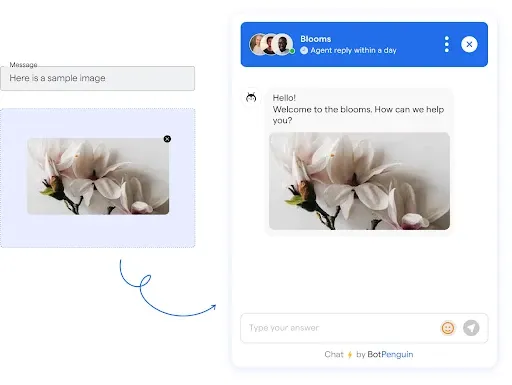
A Customer Service Chatbot is artificial intelligence (AI) software designed to communicate with customers conversationally via text-based chat interfaces.
The main purpose of a Customer Service Chatbot is to assist customers by providing them with information, answering their questions, and helping them with their inquiries.
Customer Service Chatbots can integrate into various communication channels, including social media platforms, messaging apps, and websites.
They can also be programmed to understand and respond to natural language queries, allowing them to provide personalized and relevant responses to customers.
Chatbots can handle various customer service tasks, such as processing orders, providing shipping information, resolving complaints, and providing technical support.
Businesses can use a Customer Service Chatbot to improve their customer service capabilities while reducing the workload on their support teams.
Reasons Why Customer Service Chatbots are an Absolute Necessity
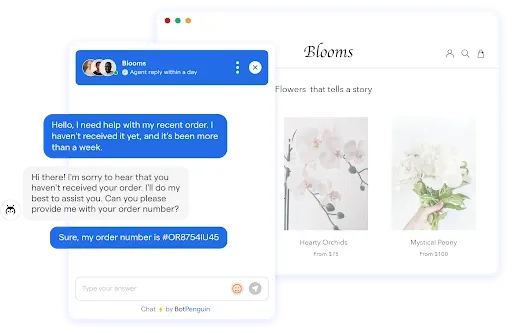
Let's examine some of the most pressing issues that make Customer Service Chatbots important.
Improved Response Time
One of the biggest advantages of chatbots is their ability to respond quickly to customer inquiries.
Unlike human agents who may need time to research an issue or ask for help, chatbots are programmed to provide instant responses based on predefined rules and data.
This means that customers can get the answers they need in real-time without waiting on hold or for a response via email. As a result, customers are more likely to be satisfied with the service they receive and will be more likely to return to your business.
Increased Availability
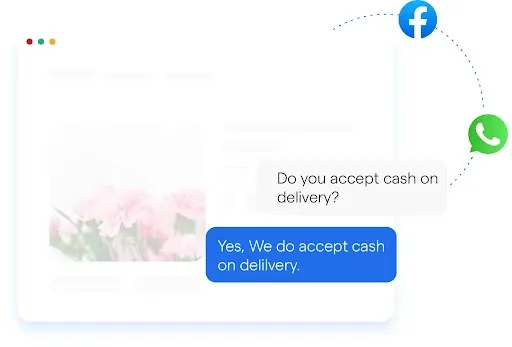
Another benefit of chatbots is their 24/7 availability. Unlike human agents who need breaks and rest, chatbots can handle customer inquiries at any time of day or night. This means customers can get the help they need, even outside normal business hours.
This is particularly important for businesses with a global customer base or operating in different time zones. With chatbots, you can ensure that your customers are always cared for, no matter when they need assistance.
Cost Savings
Chatbots are a cost-effective solution for customer service. While hiring and training human agents can be expensive, chatbots are a one-time investment.
Once programmed, they can handle unlimited customer inquiries without any additional cost.
This means that businesses can save money on labor costs and redirect those resources toward other business areas. In fact, according to a study by Juniper Research, chatbots are expected to save businesses over $8 billion per year by 2022.
Personalization
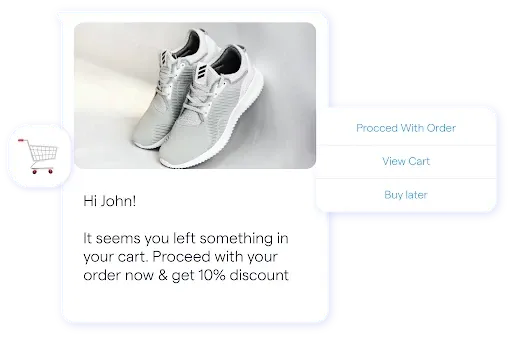
Chatbots can be programmed to provide personalized responses based on customer data.
This means they can tailor their responses to each customer, making the experience feel more personal and human-like.
For example, chatbots can use customer data such as their name, purchase history, and preferences to provide more relevant and helpful responses.
This personalization can lead to increased customer satisfaction and loyalty.
Suggested Reading:
8 Secret Techniques to Improve Customer Service Chatbot
Scalability
As your business grows, so will your customer base. This can challenge customer service teams, who may struggle to keep up with the increased volume of inquiries.
Chatbots can help solve this problem by providing scalable support. Since they can handle an unlimited number of inquiries, chatbots can keep up with the growing demand for customer service without additional human agents.
This means that businesses can continue to provide excellent customer service, no matter how large their customer base becomes.
Consistent Brand Messaging
Chatbots can be programmed to deliver a consistent brand message across all customer interactions.
This means that the tone, language, and messaging used in customer service conversations will align with your brand's values and mission.
Consistency in brand messaging helps build trust and credibility with your customers, increasing customer loyalty and retention.
Multilingual Support

In today's global marketplace, providing support in multiple languages is essential.
Chatbots can be programmed to offer multilingual support, allowing businesses to communicate with customers worldwide in their preferred language.
This feature helps improve customer satisfaction and opens up new markets for businesses to expand into.
Proactive Customer Engagement
Chatbots can be programmed to initiate customer conversations rather than waiting for customers to reach out with questions or concerns.
This proactive approach to customer engagement can help to improve customer satisfaction and retention by addressing issues before they become major problems.
For example, a chatbot could reach out to customers to remind them about an upcoming subscription renewal or offer personalized product recommendations based on their purchase history.
Seamless Integration with Other Business Tools
Chatbots can seamlessly integrate with other business tools, such as Customer Relationship Management (CRM) software and marketing automation platforms.
This integration allows for a more streamlined customer experience, with chatbots able to access customer data and provide personalized recommendations based on that data.
By integrating chatbots with other business tools, businesses can improve operational efficiency, reduce costs, and improve the overall customer experience.
Enhanced Data Collection and Analysis
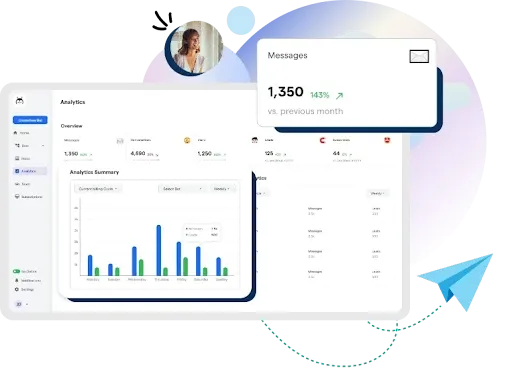
Chatbots can collect and analyze customer data, providing valuable insights into customer behavior, preferences, and pain points.
This data can be used to improve products and services, as well as to personalize customer interactions.
By collecting data in real time, chatbots can help businesses stay ahead of trends and better understand their customers, increasing customer satisfaction and loyalty.
How Would Customer Service Chatbots Develop in the Future?
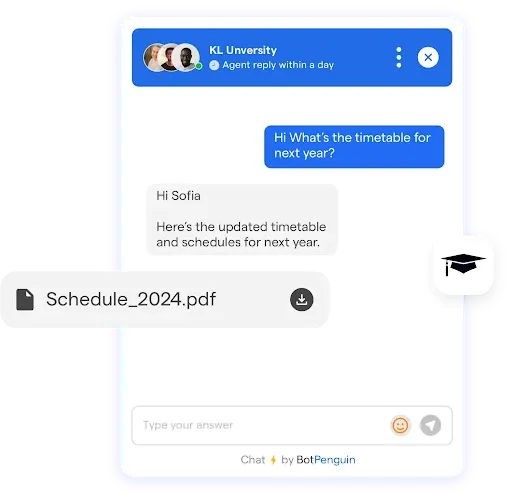
As artificial intelligence and natural language processing technologies continue to advance, the future of customer service chatbots looks promising.
Here are some ways we can expect chatbots to develop in the coming years:
Improved Personalization
Chatbots will gather and analyze customer data more effectively, allowing them to tailor their responses and recommendations to each customer.
This will result in a more personalized experience, improving customer satisfaction and loyalty.
Better Integration with Other Systems
Chatbots can seamlessly integrate with other systems, such as customer relationship management (CRM) software, inventory management systems, and payment gateways.
This will enable them to provide more comprehensive customer support, including processing orders and handling returns.
Enhanced Natural Language Processing
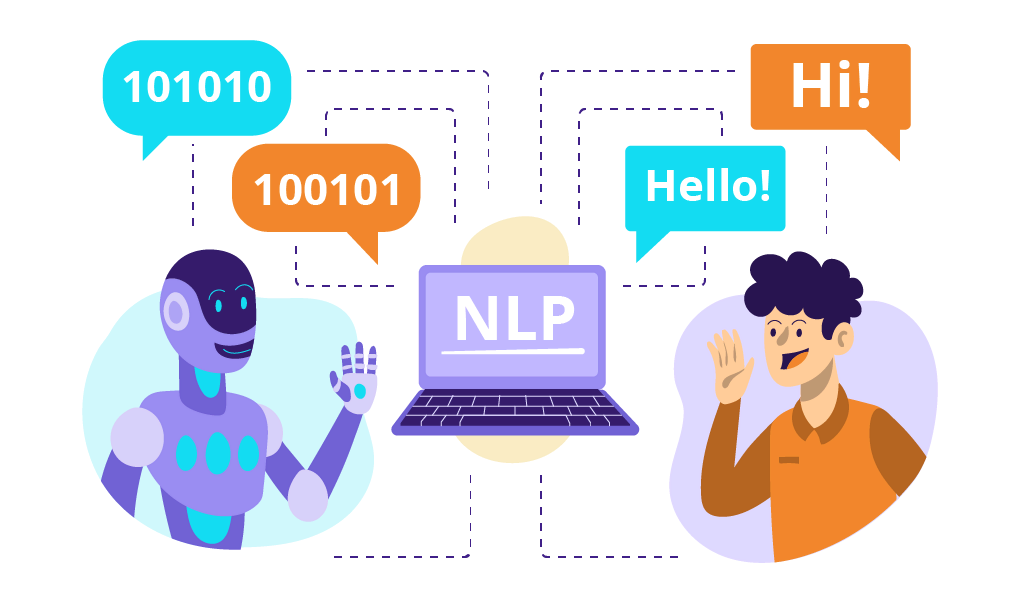
As natural language processing (NLP) technologies advance, chatbots will better understand and interpret human language.
This will allow them to respond more accurately to customer queries and requests and reduce customers' need to repeat themselves.
Integration with Voice Assistants
Chatbots will be integrated with popular voice assistants like Siri and Alexa, allowing customers to interact using voice commands.
This will make it easier and more convenient for customers to get the help they need, especially when on the go.
Suggested Reading:
12 Successful Customer Service Chatbot Examples
Increased Use of Machine Learning
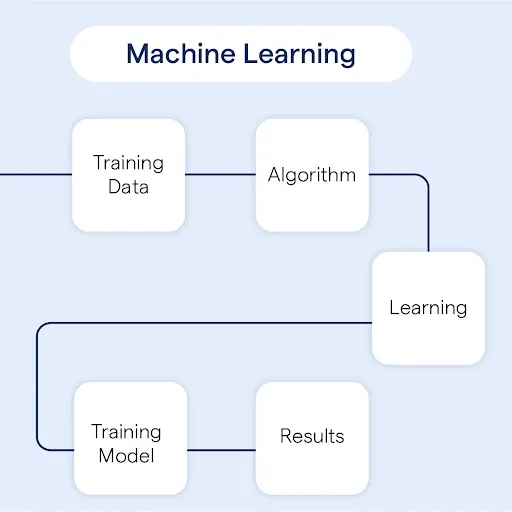
Chatbots will use machine learning algorithms to learn from customer interactions and continuously improve their performance.
This will result in more accurate, efficient, and effective chatbots for providing customer support.
More Human-like Interactions
Chatbots can replicate human-like interactions more effectively using sentiment analysis and emotion detection techniques. This will make the chatbot experience more natural and engaging and improve customer satisfaction.
Overall, the future of customer service chatbots looks bright. With continued advances in artificial intelligence and natural language processing, chatbots will become more effective at providing customer support.
They will play an increasingly important role in the customer service landscape.
Final Thoughts
In conclusion, customer service chatbot integrations will be essential for businesses in 2024. As customer expectations evolve, businesses must adapt and provide faster and more personalized support.
Chatbots offer a cost-effective solution for round-the-clock assistance, freeing human agents to focus on more complex issues.
Moreover, chatbots can also collect valuable customer data and feedback, which can be used to improve products and services and inform marketing and sales strategies.
By investing in chatbot integrations, businesses can streamline their customer service operations, improve customer satisfaction, and gain a competitive edge in the marketplace.
However, businesses must ensure that their chatbots are well-designed and user-friendly by using a solid chatbot creator like BotPenguin.
You've got everything from drip campaigns to a unified inbox with BotPenguin. If you want to create a comprehensive customer service bot, sign up today!


